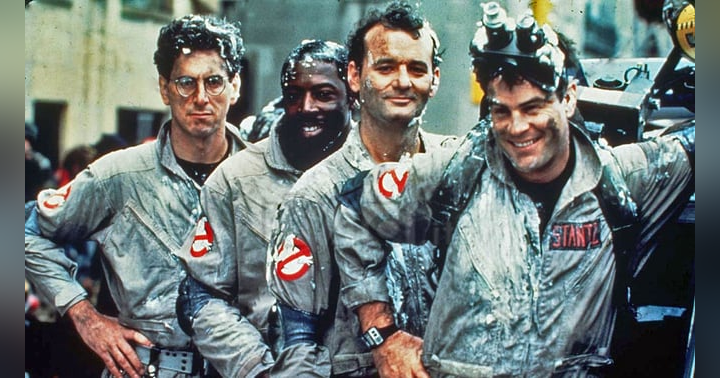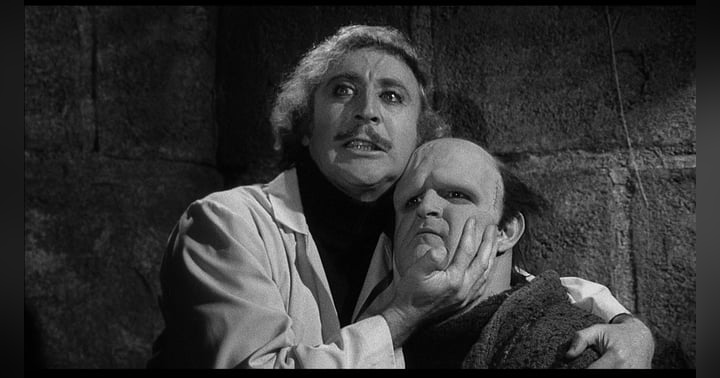As the final credits of King Kong roll, there can be no doubt that Peter Jackson adores the original 1933 film. I suspect if he could, the esteemed Kiwi director would go full Pepe Le Pew and smother that movie in smooches and French gibberish. That dewy-eyed obsession supplies this new Kong with many of its strengths and weaknesses. On one hand, Jackson and his cohorts take great pains to replicate the spirit of the original, whilst also infusing it with meticulous, eye-popping visuals and a sleek layer of modern gloss. Unfortunately, Jackson gets so emotionally invested in crafting this cinematic love letter, he doesn't know when to stop blathering. As a result, his Kong is punishingly overlong, with an exhausting buffet of CGI effects, too many supporting characters, and too much...well, everything. If any movie ever represented too much of a good thing, it would be this meandering, fatally ambitious monster epic.
The story follows the same general outline as the 1933 original. As with that film, Jackson's Kong takes place in the darkest deep of the Great Depression. Jack Black plays Carl Denham, an ambitious young filmmaker with a deliberate resemblance to RKO-era Orson Welles. And just like Welles, the studio suits are less than impressed with Denham's expensive flights of imagination. He gets wind that his latest project, an overbudget adventure flick, is about to get the axe. Before the official kibosh can come his way, Denham scrambles together his cast and crew and pushes off to sea.
Somebody must've reminded Jackson that Spielberg took an hour to show the shark in Jaws, because he spends an unforgivable amount of time twiddling his thumbs during a literal raft of exposition. So many characters; so many archetypes: Ann Darrow (Naomi Watts) is a starving actress who accepts the leading damsel part because it beats the hell outta stripping for quarters. Jack Driscoll (Adrien Brody) is the project's Screenwriter with a Heart of Gold. He yearns to be Eugene O'Neill on Broadway, but Denham's hackery is the only way to pay the bills. (It's a rarefied indulgence that Jackson and his cohorts allow the screenwriter character to become a bona fide action hero. Most productions would have the writer as the first one to be devoured.)
Jackson rounds out his overloaded cast with characters you may or may not care about: We get Bruce Baxter (Kyle Chandler), a vain, candyass action star in the mold of Errol Flynn. Then there's the plucky young rapscallion (Jamie Bell), who might know more than he lets on. Colin Hanks plays Denham's perpertually flummoxed assistant. Andy Serkis (who also does the motion capture for Kong), is Lumpy, the ship's cook and resident know-it-all. And we haven't even talked about the ship's captain (Thomas Kretschmann), who has the edgy smolder of a biker dude your daughter's about to run away with.
Whoah! If that seems like a lot of people for a Kong movie, well...you're damn right it is. I'm checking my watch at the 60-70 minute mark and we're still farting around on that stanky-ass boat. That means a lot of dialogue, and a lot of subplots: Does Jack have the hots for Ann? Does Ann have the hots for Jack?? Is there anything Carl won't do to get his movie made? Will they get the script done in time? Why are all those animals below deck? WhY aRe--
ZZZZZZZZZZzzzzzzzzzzz. Seriously. All I can tell you is that we're eighty-five minutes into this so-called ape movie before we get a glimpse of a damn ape. For all the beauty and blind ambition on display in Jackson's Kong, that, my friends, is an interminable stretch to watch hapless actors in front of greenscreens. Hell, the '33 flick was already on its way to Manhattan by this point.
On the flip side: When Kong does appear, he looks magnificent. Wētā, Jackson's effects house, takes great care that every micrometer of the great beast looks absolutely real. That goes ditto for Serkis, who supplies genuine humanity to his performance. If the whole of Kong never quite hangs together, it's never from a lack of care.
And that's the thing, the pieces of Jackson's opus outshine the sum total. In small bursts, Kong becomes truly masterful. The t-rex battle from the OG film is expanded, enhanced, and it is impressive. Same for the iconic battle atop the Empire State Building. Jackson delivers thrilling angles to the attack that could never have been achieved in any previous era.
The performances are a mixed bag--even they only work here and there. I can't tell if Black is miscast or the character is poorly written, or perhaps both. Either way, Denham never quite works. Black is best when filmmakers make use of the anarchic twinkle that naturally emanates from him. We have to feel like nobody else could've done as well. Denham is a fairly bland, one-note antagonist, and lots of actors could've played him. In a film that desperately needs to be less, the filmmakers owed Jack Black a little more.
At the same time, Watts is a perfect Ann Darrow. (And I'm not just talking about her blood-curdling scream, which would make Fay Wray proud.) She elevates the role beyond a mere damsel, and delivers real empathy and sympathy. We believe the emotional ache she feels for the lonely Kong, and this bond helps the movie get better as it goes along. To the degree that this movie works, a lot of the credit should go to Watts. (Although I will say that she and Brody have zippo in the chemistry department. He's another actor who feels thoroughly mishandled.)
Kong is one of those movies where so many things push and pull against each other, it's difficult to form a coherent opinion. This is an eye-popping experience, with a lot of moments that embody why movies are even made in the first place. At the same time, those moments are spread thin, across a staggering 190-minute runtime. Clearly, Jackson and company aimed to craft a loving poem to an all-time movie, but they ended up building a large, ungainly monster. The irony couldn't be more clear: For this King Kong, 'twas beast that killed the beauty. (6 of 10)
188 minutes. PG-13. Netflix.







